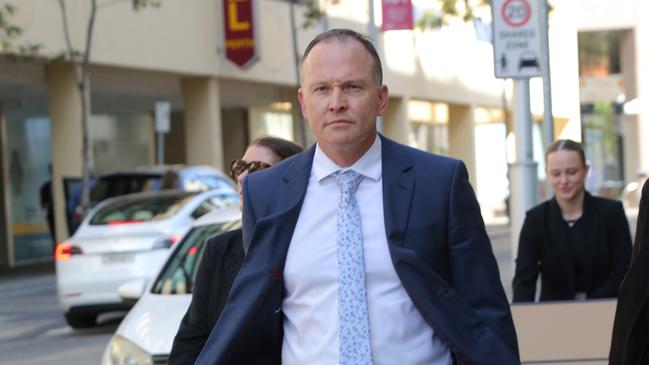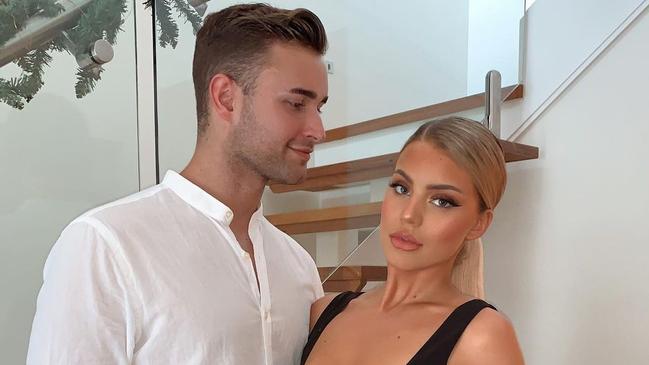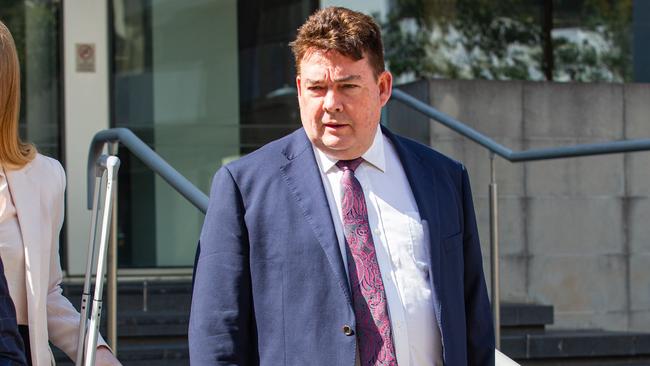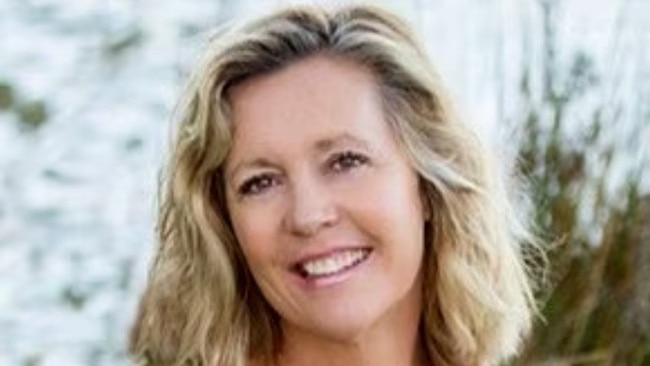A man who allegedly killed his mother for money was bankrupt months before arrest, court told
A man accused of killing his mother to gain money from her life insurance had been declared bankrupt months before he was arrested, a court has been told.

A man accused of killing his mother to gain money from life insurance policies he set up against her had declared bankruptcy after her death, a court has been told.
The WA Supreme Court was told Andre Zachary Rebelo portrayed a life of luxury with his model defacto Grace Piscopo on social media, but the prosecution argued he was in debt trying to fund a “plastic” lifestyle on credit cards and personal loans.
Mr Rebelo is on trial for the murder of his mother Colleen Rebelo who was found dead in her Bicton home on May 25, 2020. He has pleaded not guilty.
He allegedly took out three life insurance policies against his mother in the week before she died then started the claims process to access the premiums days after she died.
He pursued one of the claims worth $500,000 submitting forged documents to expedite the payout from the insurer.
The court was told the insurer suspected the claim was fraudulent and reported it to police.
The jury heard Mr Rebelo pleaded guilty to fraud, but denied killing his mother.

The financial position of Mr Rebelo and Ms Piscopo was revealed in court on Tuesday, which showed Mr Rebelo had barely any money in his savings account a month after Ms Rebelo was found dead in her home.
WA Police Financial Crime Squad investigator Darren Stammers examined the couple’s financial records over a three-year period from June 2018 until June 2020.
He told the court on Tuesday the couple had a combined income of about $339,000 mostly earned through Ms Piscopo’s modelling career during the three years, but a month after Ms Rebelo died the couple had no savings, with a combined debt of $112,000.
The couple had credit cards and personal loans, which they increased during the three years, as well as Afterpay and ZipPay accounts adding to their financial burden, Mr Stammers said.

Mr Rebelo was being pursued by debt collection agencies, and the couple had missed rental and car payments on a Range Rover eVoque Ms Piscopo bought with a personal loan in 2018.
Mr Rebelo declared bankruptcy in March 2022, he was arrested about eight months later, the court had been told.
Mr Stammers said it was fair to say Mr Rebelo was in financial hardship, which was likely compounded by Covid.
“Particularly from 2019 when he defaulted on credit card and personal loan repayments and was subject to recovery action,” he said.
“Mr Rebelo’s income sources, through employment or from his own capacity, were lower than the Australian average and it was probably insufficient to cover his expenses.
“As a result, he spent more money than he was earning and the debts he was taking on.”

Mr Stammers told the court Ms Piscopo was quite successful from modelling and social media activities, which generated a significant amount of money during the three year period.
He said Ms Piscopo spent money as part of her social media profile, bought a car on borrowed money and took out a credit card which she had difficulty repaying.
He told the court the couple also moved into a rental property together at a “fairly significant cost” of $880 per week.
“Although her income was considerably more than Mr Rebelo’s, their general expenses were at a level they were unable to save or contribute to debts.
“I think coronavirus had a significant impact on her.
“It is fair to say they were in a difficult financial position at various points.
“Comparing their income and expenses in June 2020, it clearly shows their expenses were more than their income.
“Their situation deteriorated from December 2019 to June 2020.”

Defence lawyer Anthony Elliott argued looking at the couple’s financial position retrospectively was not the best indicator of what income would come in the future.
He said if you put aside the couple’s credit card and personal loan, they were meeting their financial obligations, but the financial investigator disagreed.
Mr Stammers said they had defaulted on car payments and rent and were delinquent on their credit cards and personal loans.
But Mr Elliott argued late rent and car payments were resolved quickly.
He put to Mr Stammers that it was possible the couple had borrowed money to fund their social media business, saying to keep their business running at end of financial year 2019 they had to get some money from somewhere.
Mr Stammers responded there was a significant amount spent on luxury goods which he imagined were items for Ms Piscopo’s social media profile.
“I don’t know the exact underlying goods but there was a lot of luxury purchases,” Mr Stammers said.

The jury has heard while Ms Rebelo’s death was sudden and unexpected, it was not treated as suspicious by first responders who were called to her home when she died.
Medical experts including Ms Rebelo’s GP Dr Niall Barrett and endocrinologist Timothy Welborn both gave evidence in the trial, telling the court Ms Rebelo was healthy when she died.
Both witnesses said it was unlikely Ms Rebelo died suddenly from medical conditions she had been living with at the time of her death.
Forensic pathologist Dr Reimar Junkerstorff who performed an autopsy on her body was unable to determine Ms Rebelo’s cause of death, despite auxiliary testing.
Dr Junkerstorff told the court he could not rule out that Ms Rebelo died from asphyxiation or was smothered.
Mr Rebelo’s defence team argued that traces of focal subendocardial interstitial fibrosis found on Ms Rebelo’s heart meant she could have died from cardiac arrhythmia, causing her to collapse suddenly and die.
The trial continues.


